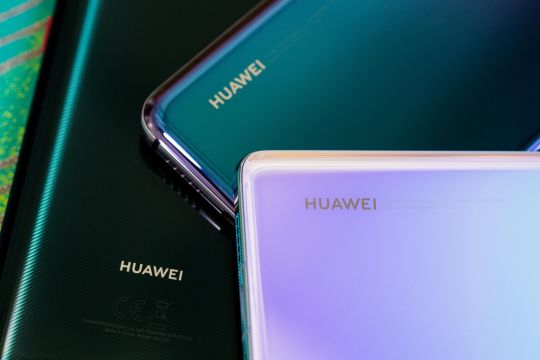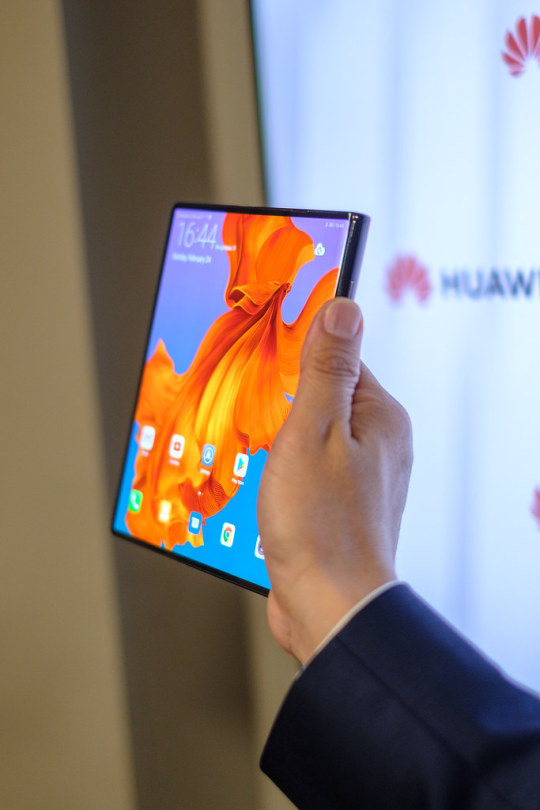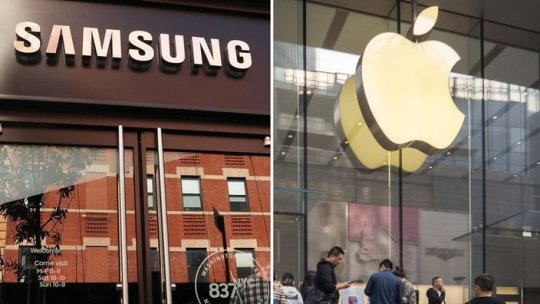
On May 16, the Chinese tech giant, Huawei, and its 68 subsidiaries were included in the “Blacklist” of the US commerce department under an executive order of the president Donald Trump. In other words, this means the company was prohibited from making business with US companies…period. The shocking news rock the tech world from its core – leading to projected power redistribution among mobile tech giants and commercial uncertainties among Chinese tech companies. What impact will the bold move from the US president imply for the Chinese tech giant? Well not only Huawei is a concern, but let’s see this together.
First thing first: what really motivated the US to ban Huawei? Probably a security concern. Last year, the company has been accused on numerous occasions by US officials of a couple of violations. Intelligence officials in the US have warned against Huawei acting as a medium for spying from the Chinese government. Indeed Huawei been a telecom company, its telecom infrastructure may be exploited by the Chinese government for spying purposes (either by a deal with Huawei, or sneaking malware into their infrastructure without their knowledge). Last week Thursday, Donald Trump categorized Huawei as being “very dangerous” in a meeting in the White House – for the White House, the risk is “too real”.
Huawei is very dangerous. You look at what they did from a security point of view, from the military point of view, it’s very dangerous - President Donal Trump.But is security concern the only reason for this ban? Not sure. 5G then? Maybe. Donald Trump is very serious about 5G and assured the US will win this race. However, Huawei represents bad omen for the president’s ambitions, as Huawei is already on a good track to win the race. Slowing down their progression by at least keeping them far from US infrastructures hence seemed a judicious idea. Washington even encouraged other countries to keep Huawei from their 5G infrastructure plans. In addition, experts believe Huawei is the face of an ongoing trade war between the US and China. The US has never been able to find a middle ground with China concerning this war - hence with Huawei, Trump hopes to leverage a bargain as he implied last Thursday.
If we reach an agreement, I could imagine that Huawei could be included in some form or part of it - President Donald TrumpThe ban has led to probably the biggest backstab done to a company in the tech industry. Following the ban, key partners to Huawei announced ending any ongoing contracts and licenses with Huawei, starting with Android. Intel, Qualcomm, and ARM followed Google ending all contracts with Huawei. The Chinese tech company‘s membership in the SD Association (the trade group that agrees upon standardized specs for SD and microSD cards) was also revoked, while its membership in the WI-FI Alliance (which sets Wi-Fi standards across the industry) was temporarily restricted. On the other hand, EE (a UK mobile carrier own by BT Group which is one of Europe’s biggest telecommunications companies) will pause the inclusion of Huawei phones in its launch of 5G. Last but not least, Huawei voluntarily left JEDEC (a semiconductor standards group best known for defining RAM specifications), probably to save it last bit of dignity, while the giant’s products are nowhere to be seen on Microsoft and Google’s online stores, just to name these.
This is what @MarcAllera, CEO of BT consumer brands (EE, BT and Plusnet) said about @Huawei devices in the light of the recent news about the Chinese brand “we will wait for more information” #5GEE pic.twitter.com/wqYNrVxVVH
TSMC, a semiconductor company and one of Huawei’s biggest partner is probably of the few Huawei can still count on. The Taiwanese firm does not exploit US technologies and so its activities are not affected by the ban. Note that the company participates to the fabrication of the upcoming Kirin 980; a relieve for Huawei. As to what concerns the traitors, Huawei had seen this coming and took some big precautions. For example, it is reported the company stocked the equivalent of one year of “crucial” components six months prior to the ban, thus counteracting Intel and Qualcomm’s departure. Concerning the SD Association, Huawei can care less as the company has its own proprietary Nano-Memory Cards, which have replaced the already aging universal standard on its newer devices. As to Android and Windows, Huawei will initiate what it calls “Plan B”. This involves launching the replacements to Android and Windows, which will be available for the fourth quarter of 2019 outside China. Both wills (or may) run on AOSP (the ROM on which Android is based) and will include Huawei’s App Gallery Store. To make this new and intriguing gallery work, Huawei reportedly pitched app makers last year on creating apps for its store with the offer of helping them make inroads into China and a “very significant” share of the app store’s revenue.
Despite Huawei remaining confident on its ability to remain competitive in the smartphone market, doubts still subsist among consumers. First is ARM’s technologies. Some of ARM’s chip architecture designs are manufactured in the US (which could place it under US restrictions hence it stepping back), and those designs are used by Huawei in its Kirin processors. The ban, therefore, prevents Huawei from using those designs in its chips. If Huawei wants to continue producing chips, it will have to find new designs ASAP. The second most worrisome aspect is its new operating systems, that come without Google’s apps and APIs. Competing against Google and Microsoft literally equals crashing against a steel wall. From Mozilla with its Firefox OS to Ubuntu passing by Samsung with it Tizen, Amazon and Microsoft, all those that attempted ended up giving up. Blackberry, on the other hand, is a very (very) sad story. Google has been known for practicing disloyal competition as it did with Windows Phone (refusing to develop its app for the platform), hence it lacked apps consumers demanded (Gmail, YouTube, Maps, etc.). As for Windows, the only tier viable OS at the moment is Google’s Chrome OS. Hence Huawei’s replacement will have to compete against Windows and Chrome OS in a market dominated by Lenovo, HP, Dell, Acer, etc. – let’s be surprised.

Huawei Mate X which was the most promising foldable phone may no more be promising due to the ban.
Without any official presence in the US and no direct mean of selling its product in the US, Huawei has been able to impose itself as the second top smartphone maker in the world. Contrary to what we may think, the US ban may have little impact on Huawei’s business. The period where Chinese companies were content in assembling phones is over. Huawei does not want to manufacture its own components, but if they have to, they will. Huawei wants to ensure as Its CEO implied in a press interview on the 21 of May: « The American political staff, by its ways of doing right now, shows that it underestimates our strength
»
. In fact, on the same day, the company said its revenue was 39% more than last year. In the first quarter of 2018, it shipped 59 million phones, earning a $26.8 billion in revenue (bear in mind these sales happened before the ban so nothing is yet sure about the company’s future). As to 5G, Trump will have to find another tactic. In Huawei’s CEO words:
«
Huawei’s 5G will not be affected at all (by all that). In terms of 5G technology, it is not in two, three years that other companies will catch up with Huawei », the target of his words being American and European companies. He even claimed the company had shipped 70,000 5G base stations in the first quarter of 2019 and signed 40 contracts to provide carriers with 5G equipment.
To be honest, in this trade war, the USA has much more to lose than China. While president Trump may believe he achieved leverage in the negotiations, it may instead lead to retaliation from China, accelerating the “technology cold war" as The Verge calls it. People have imagined a scenario in which China bans apple from its territory which will be chaotic. China represents one-fifth of Apple’s revenue. Apple is present in all the large retail stores and collaborates with the totality of locale mobile operators, plus its 40 apple store in the Middle Kingdom. If that were to happen, Goldman Sachs estimated Apple’s revenue will plummet by 29%. This won’t be good news for Apple whose revenue is slowly decreasing. In addition, Apple will have to look for battery suppliers ASAP as factories manufacturing its batteries are all found in China – though Huawei opposes China taking measures against Apple and even assured to take Apple’s side if it were to happen (seriously Huawei?). Nevertheless, this won’t stop the anti-American feeling that appears on Chinese social media. As for Google, if Huawei’s app store was to find success, it will offer serious competition to the Play store (a good new for the European Union) as well as eating parts of its market shares. Google will also lose serious royalties from Huawei’s exploitation of its licenses, but also a huge amount of user’s data will get out of Google’s hand, which the company heavily relies on for all its services. Lastly, rural areas in the US may see themselves without cell service. These areas were entirely dependent on Huawei’s inexpensive equipment. They will be forced to turn to European technology which comes at a price.
Huawei is the unparalleled leader in 5G. We are ready and willing to engage with the US government and come up with effective measures to ensure product security. Restricting Huawei from doing business in the US will not make the US more secure or stronger; instead, this will only serve to limit the US to inferior yet more expensive alternatives, leaving the US lagging behind in 5G deployment, and eventually harming the interests of US companies and consumers. In addition, unreasonable restrictions will infringe upon Huawei’s rights and raise other serious legal issues.
If I’m a US company I look at this national emergency ban, and it says I should be very careful to do business with any companies that have significant interlocking relationships with China - Charles Skuba, a professor at Georgetown University’s McDonough School of Business.

Huawei being the fastest growing tech company in the world, the ban comes at the wrong time. Huawei was projected to become the number 1 smartphone seller in the world, overtaking Samsung with 23% market share at the moment, everything remaining equal for Apple who remains number 3 worldwide. If Huawei can face the repercussions of this ban without much hassle, we can’t say the same for other Chinese companies. After ZTE and now Huawei who has been banned, US companies wonder “who might be next?”, therefore announcing a wind of uncertainty over Chinese companies. As for now, Huawei will be contesting the order in court, judging the ban to be “unconstitutional" as they are fond of pointing out “the US has produced no public evidence that the company is an active national security threat, and many have raised questions about why providing components to a phone manufacturer poses a threat to US interests”. As for now, there is no need for owners of Huawei’s devices to change their devices. Things could rapidly change. However, staying on the lookout for the next deal remains a plausible idea.



![[Tutorial]Here Is How I Link My Phone and PC](https://blogger.googleusercontent.com/img/b/R29vZ2xl/AVvXsEg5rJkBYJJMClrUv9bUbfz4vcSLN6VBNunlZf42iTtBoAoRK4IE05SG3kPYWu2dTFpzCW1sElKDQwRHOa7P7fWAUBh9M0IrQSITv2GpVj_7TxXyD4YD-kyLMR9gScbSIrCCQVhUgqgKloE/s72-c/ezgif.com-webp-to-jpg+%25284%2529.jpg)
![[Brief]Android Go Edition: What I Think After Six Months of Use](https://blogger.googleusercontent.com/img/b/R29vZ2xl/AVvXsEh7hxY1K3S7luETKpx1MxuSVfW40r6y11nJvsQEXoksp15MNFA2hNzGd-wYRK35ceZRFycSlTuwEIDcHW2anp6Yw23Jn6uqtzAAzYbCG-VOImbUJYx9tSEuUwhWcmsocEmNt3vRAUV-WTE/s72-c/google-android-go-768x432.png)


No comments:
Post a Comment